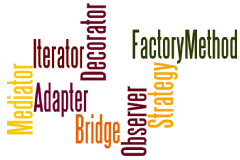ASP.NET MVC Programming Using C#
Students Will Learn
- Using Visual Studio to create C# applications
- Working with .NET data types
- Creating variables with the proper scope and using operators to build complex expressions
- Designing and using classes
- Using control structures such as if, while and for
- Using procedures to build complex applications
- Throwing and trapping exceptions using the try and catch statements
- Using single and multi-dimensional arrays
- Working with .NET collections
- Using LINQ to make queries
- Defining and implementing interfaces
- Working with enumerations
- Architecture of ASP.NET MVC web applications
- Using Visual Studio to create Internet and Intranet applications
- Creating controllers containing action methods to process HTTP requests
- Using both the ASPX and Razor view engines to design ASP.NET MVC views to render responses to HTTP requests
- Creating data models by hand, by using typed datasets, and by using the Entity Framework
- Creating and debugging ASP.NET MVC routines
- Using MS Test and NUnit to create and run tests for ASP.NET MVC applications
- Integrating ASP.NET Web Forms and ASP.NET MVC within one web application
- Securing and deploying ASP.NET MVC web applications
Course Description:
This course provides students with hands on experience using Visual Studio to create dynamic web applications using ASP.NET MVC and C#. The class provides a thorough introduction to the C# programming language, including coverage of the essentials of the C# programming language, built in data types, operators, control structures, classes and methods, collections and exception handling.
Students learn how to leverage the power of the Model-View-Controller design pattern with the ASP.NET MVC Framework to separate the layers of a web application. Students will use the ASPX and Razor view engines to design a user interface. Students will learn how to build models to manage an application's data layer using both the Entity Framework and LINQ to SQL. And students will learn how to build controllers containing action methods to manage communication between views and models.
Other topics include data scaffolding; URL routing; implementing security; using MVC and Web Forms in the same application, unit testing; and deploying ASP.NET MVC applications. Comprehensive labs provide the students with experience creating, debugging, testing and deploying dynamic ASP.NET MVC applications.
This course provides thorough coverage of the use of ASP.NET MVC for creation of web applications. Students requiring additional coverage of ASP.NET Web Forms, Windows Forms, WCF or Windows Presentation Foundation should contact HOTT or refer to HOTT's complete course listing for additional training courses.
Students who are already familiar with the C# language syntax may want to take the 3-day ASP.NET MVC Programming for Experienced C# Programmers course instead.






